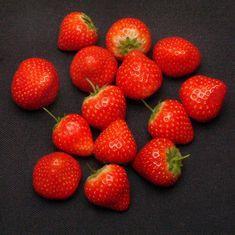
A new strawberry under trial in Scotland is poised to move into the early stages of commercial production next season as interest among growers and retailers in the variety mounts.
Red Princess was developed by an intensive breeding programme managed by Redeva and is the result of a specific cross identified after thousands of selections.
Redeva varieties currently form the backbone of production in Egypt and the company is now looking to identify cultivars for other climates
As well as fulfilling criteria on flavour, colour and shape in taste tests, Red Princess also stands out for its ability to grow well and crop heavily in the cooler conditions north of the border.
Irene Geoghegan, UK breeder and trial co-ordinator, has monitored the fruit’s progress within the company’s Israeli breeding programme since 2003.
She said: “Red Princess has performed really well in independent grower trials across Scotland for the past two years.
“Being Scottish, I am always looking out for varieties that perform better in our mild summers and, this year, Red Princess has produced well over a kilo [of fruit] per plant in covered, soil-grown and table-top production.
“The variety produces an attractive pink/orange, medium-sized, heart-shaped fruit that has a good balanced flavour and brix levels approaching 12 per cent.”
Geoghegan adds: “Red Princess is day-neutral and therefore has the capacity to continue fruiting until the first frosts. The plant is very upright but the flowers stand above the foliage and so present the fruit well for harvesting.”
So far, pest and disease have been controlled by a standard programme and using fleece could have a positive effect on the variety’s earliness. The growers involved have all asked for more plants next year, so the 40,000 being propagated this year will all find a home.
The plan is now to establish one large commercial trial and continue smaller ones around Scotland to further develop Redeva’s knowledge of the fruit’s habit and performance. Geoghegan already forecasts the propagation of significant volumes in 2010.



